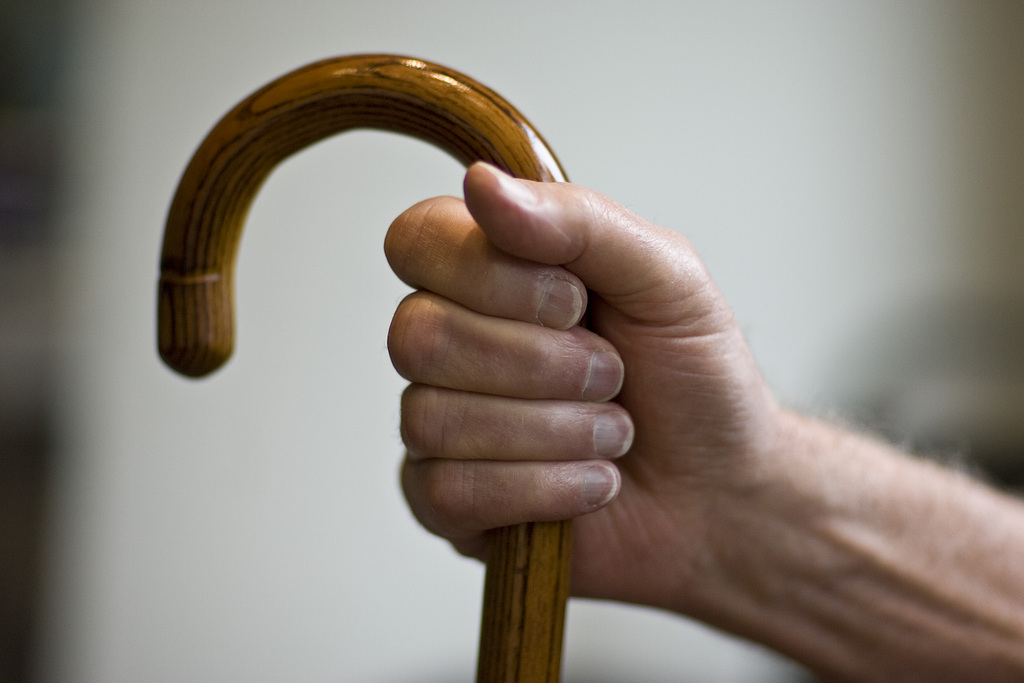Swiss research team cures arthritis in mice

Researchers at the federal technology institute ETH Zurich have developed a cure for arthritis in mice that could be rolled out for humans in a few years.
Up to this point, doctors have used various drugs to slow or stop the progression of the disease. But the therapy developed by ETH Zurich researchers takes the treatment of rheumatoid arthritis in mice to a new level: after receiving the medication, researchers consider the animals to be fully cured.
The drug is a biotechnologically produced active substance consisting of two fused components. One component is the body’s own immune system messenger called interleukin 4 (IL-4) that protects mice with rheumatoid arthritis against cartilage and bone damage.
The second component is an antibody that is found only in inflamed tissue in certain diseases and tumours. The role of the antibody is to lead IL-4 to where it is needed and can be most effective.
“It allows us to concentrate the active substance at the site of the disease. The concentration in the rest of the body is minimal, which reduces side-effects,” says Teresa Hemmerle, one of the lead authors of the study which was published in the Proceedings of the National Academy of Sciences (PNAS).
Arthritis cure in humans
Interestingly, the researchers also found that the drug was more effective when administered in combination with dexamethasone, a cortisone-like anti-inflammatory drug that is already used to treat rheumatoid arthritis in humans. The typical signs of arthritis in mice, such as swollen toes and paws, disappeared completely within a few days when both medications were administered at the same time.
“In our mouse model, this combined treatment creates a long-term cure,” says Hemmerle, who now works at Philochem, an ETH Zurich spin-off company, where she continues the project.
Based on the promising results from the animal model, Philochem is currently preparing to test the new drug in clinical trials on people suffering from rheumatoid arthritis. According to the researchers, these tests will begin next year. Rheumatoid arthritis affects 0.5% to 1% of the world’s population.

In compliance with the JTI standards
More: SWI swissinfo.ch certified by the Journalism Trust Initiative









You can find an overview of ongoing debates with our journalists here . Please join us!
If you want to start a conversation about a topic raised in this article or want to report factual errors, email us at english@swissinfo.ch.